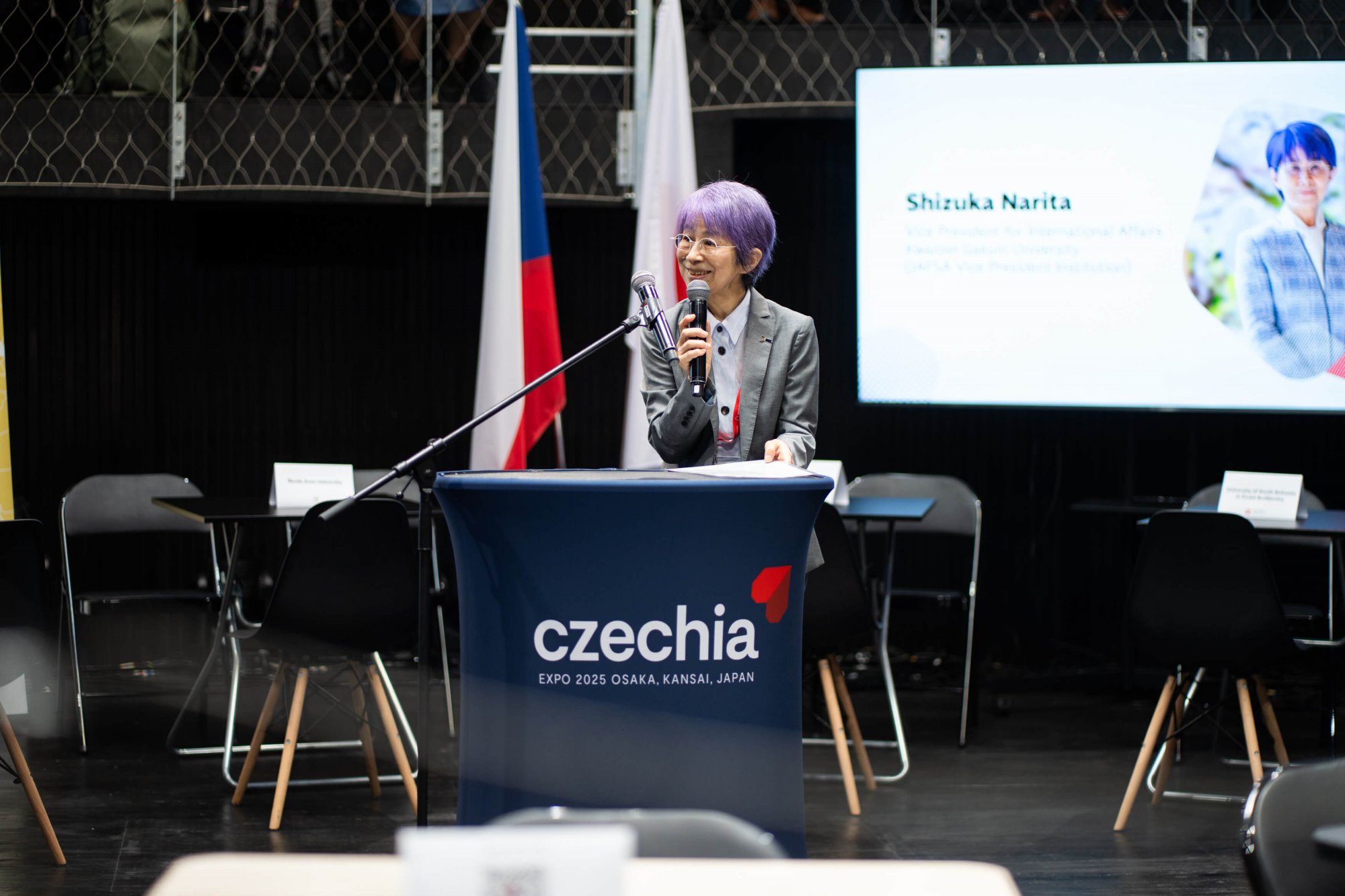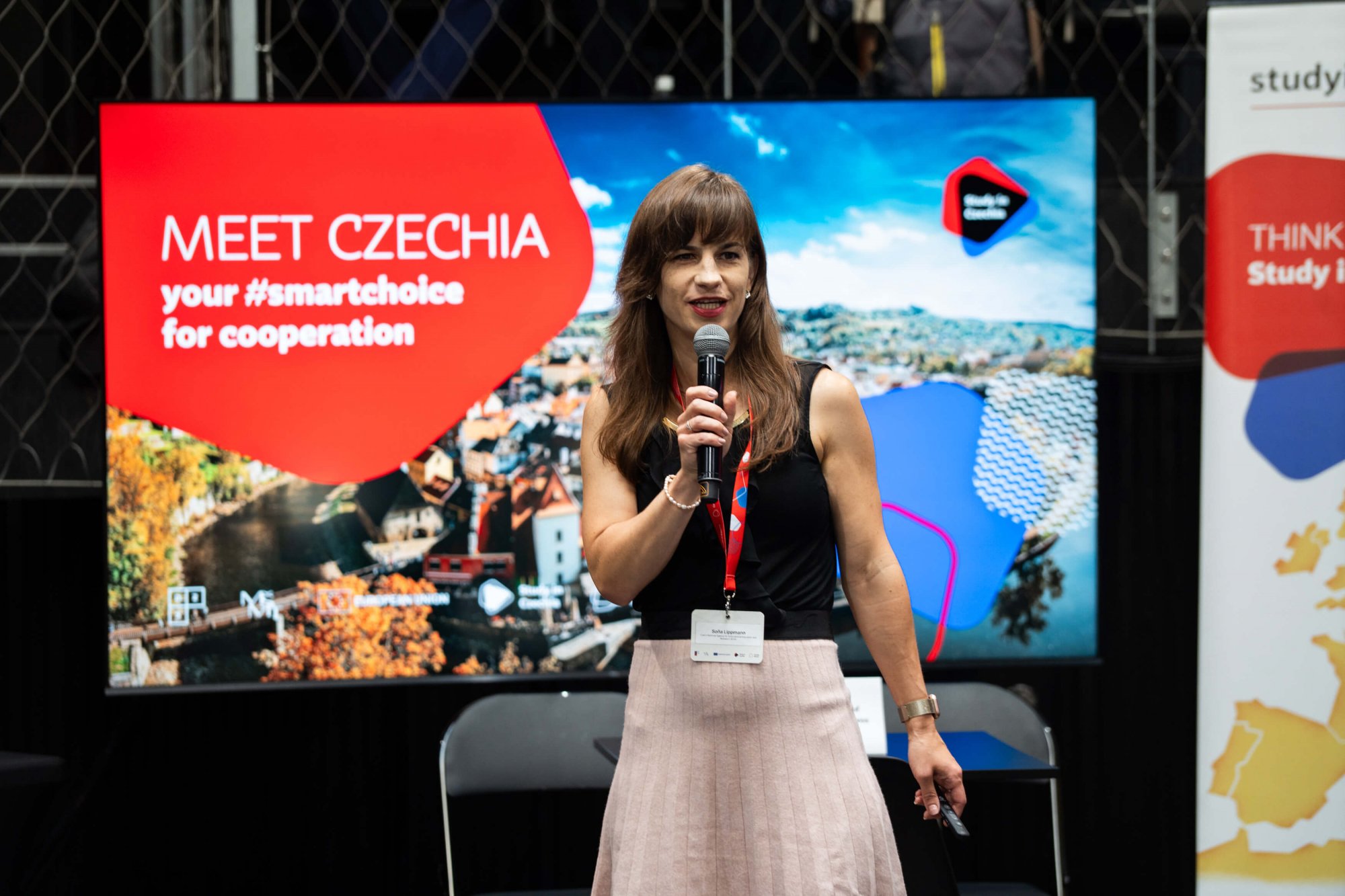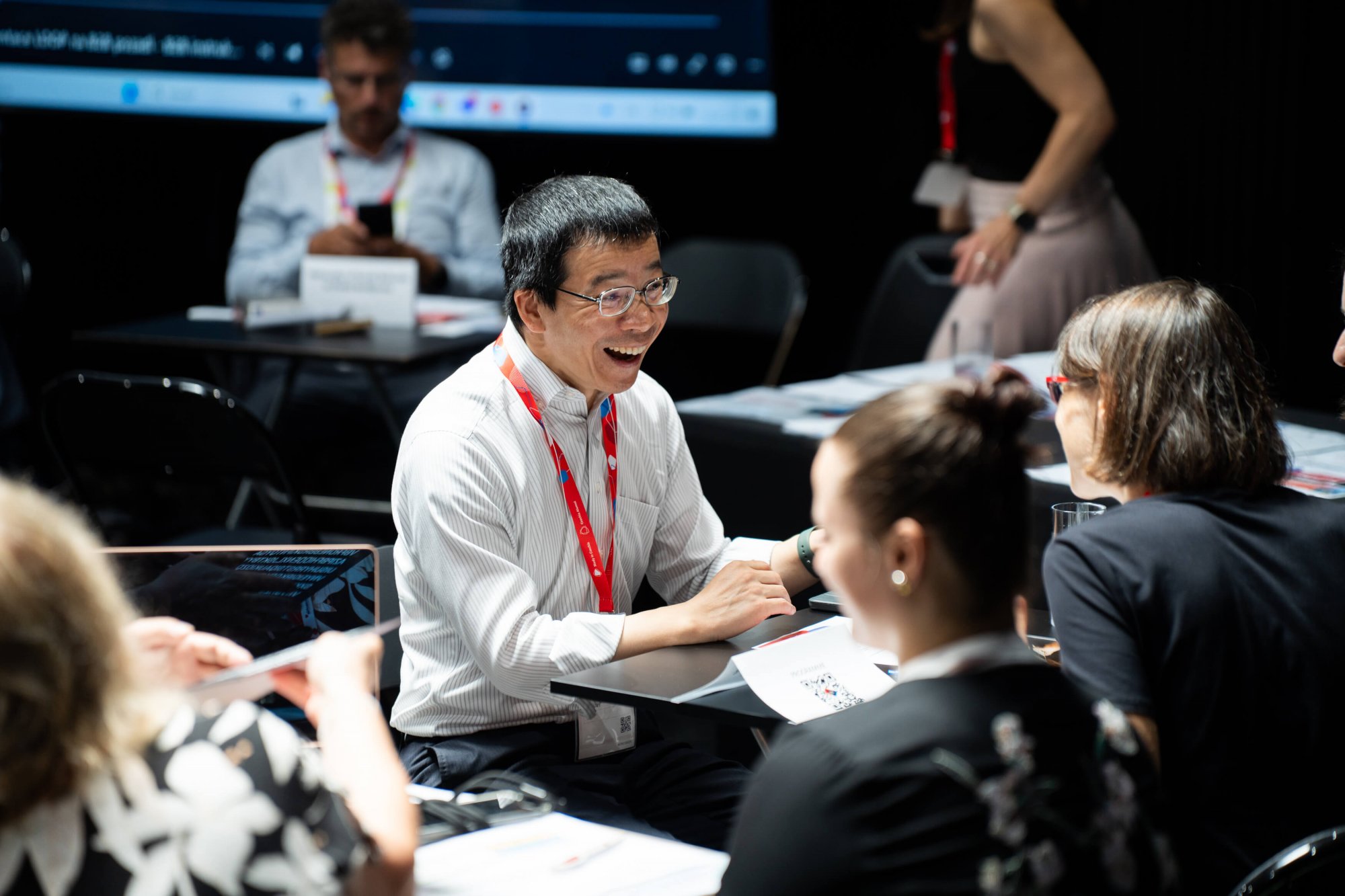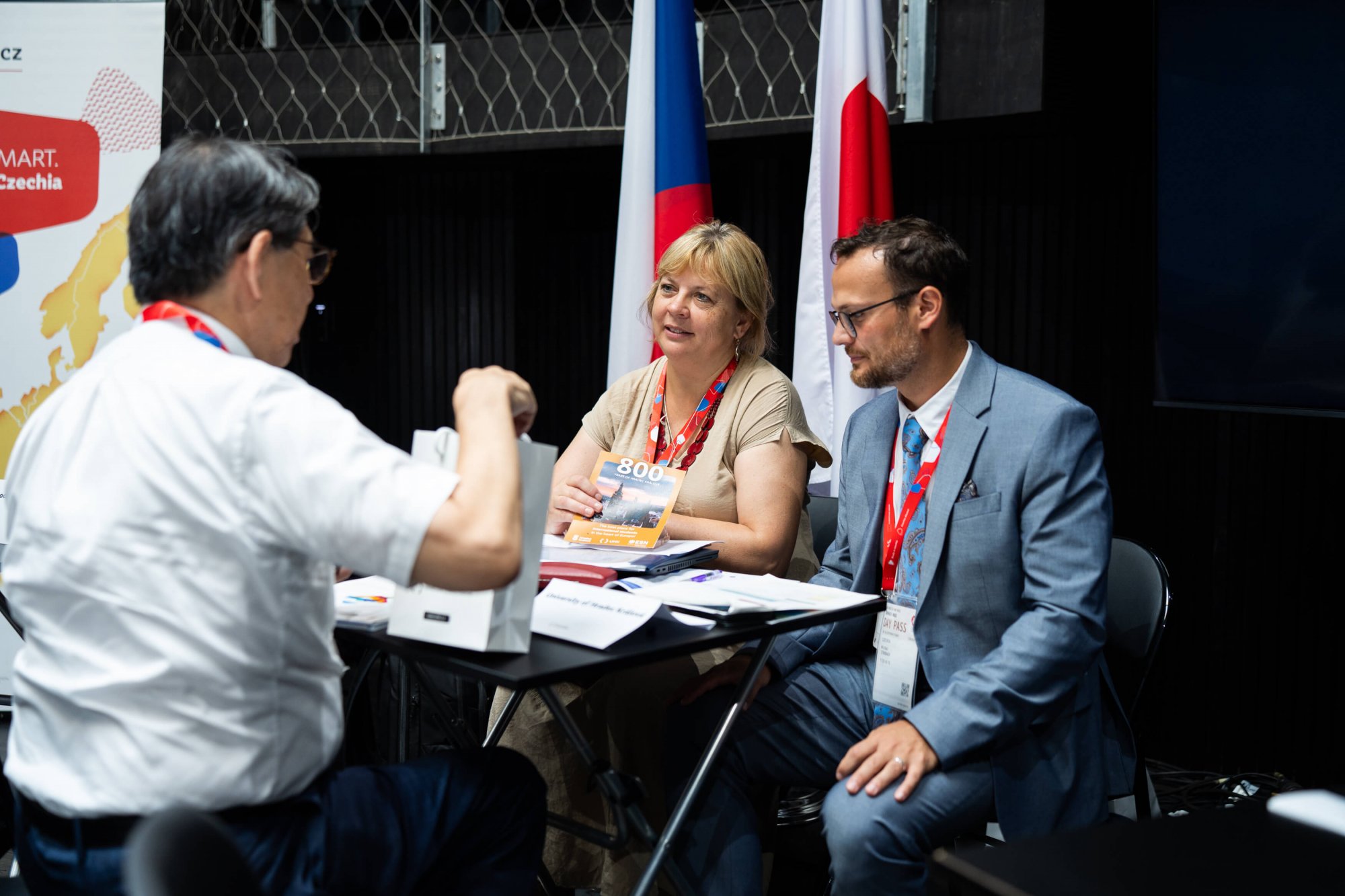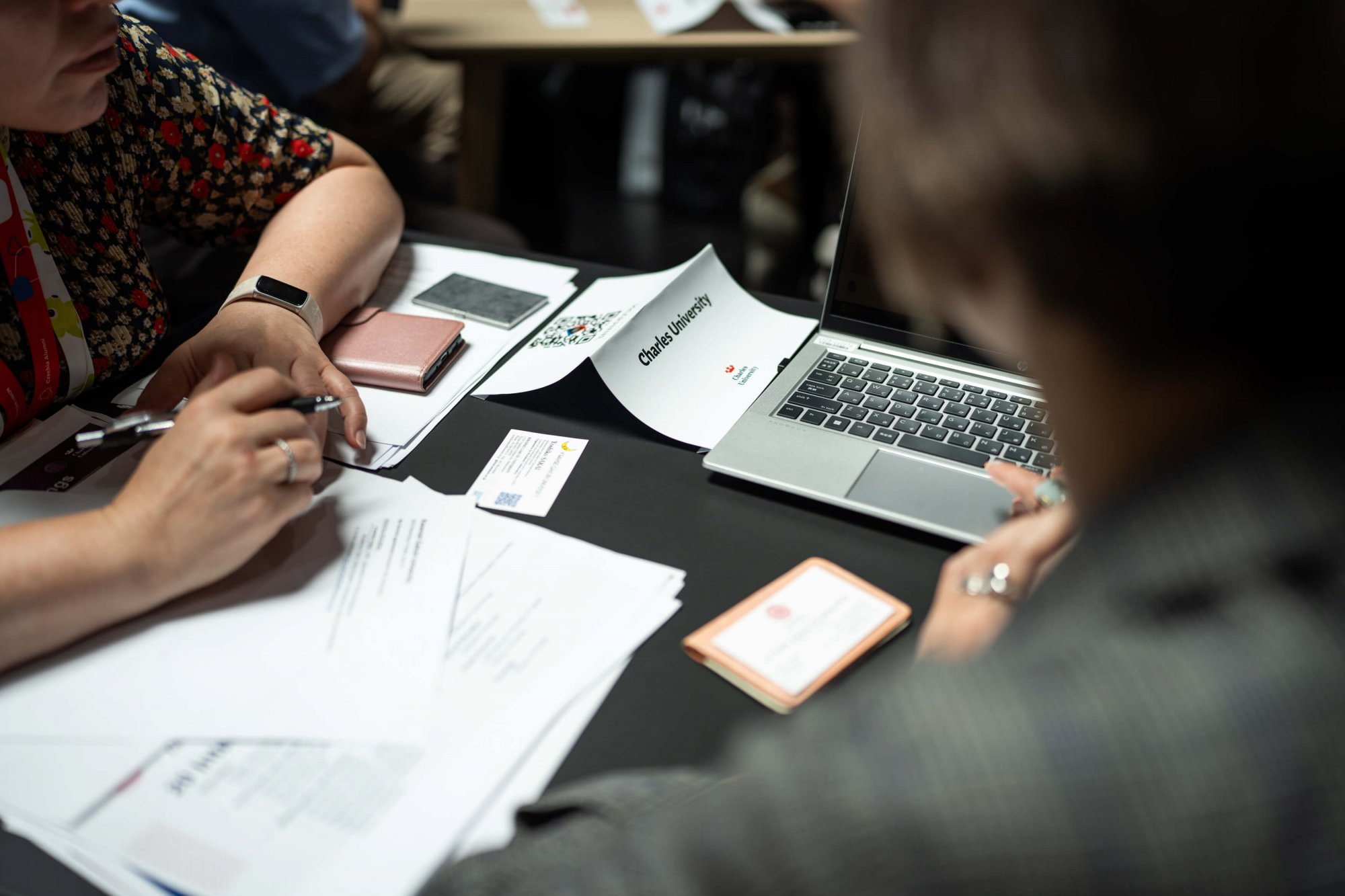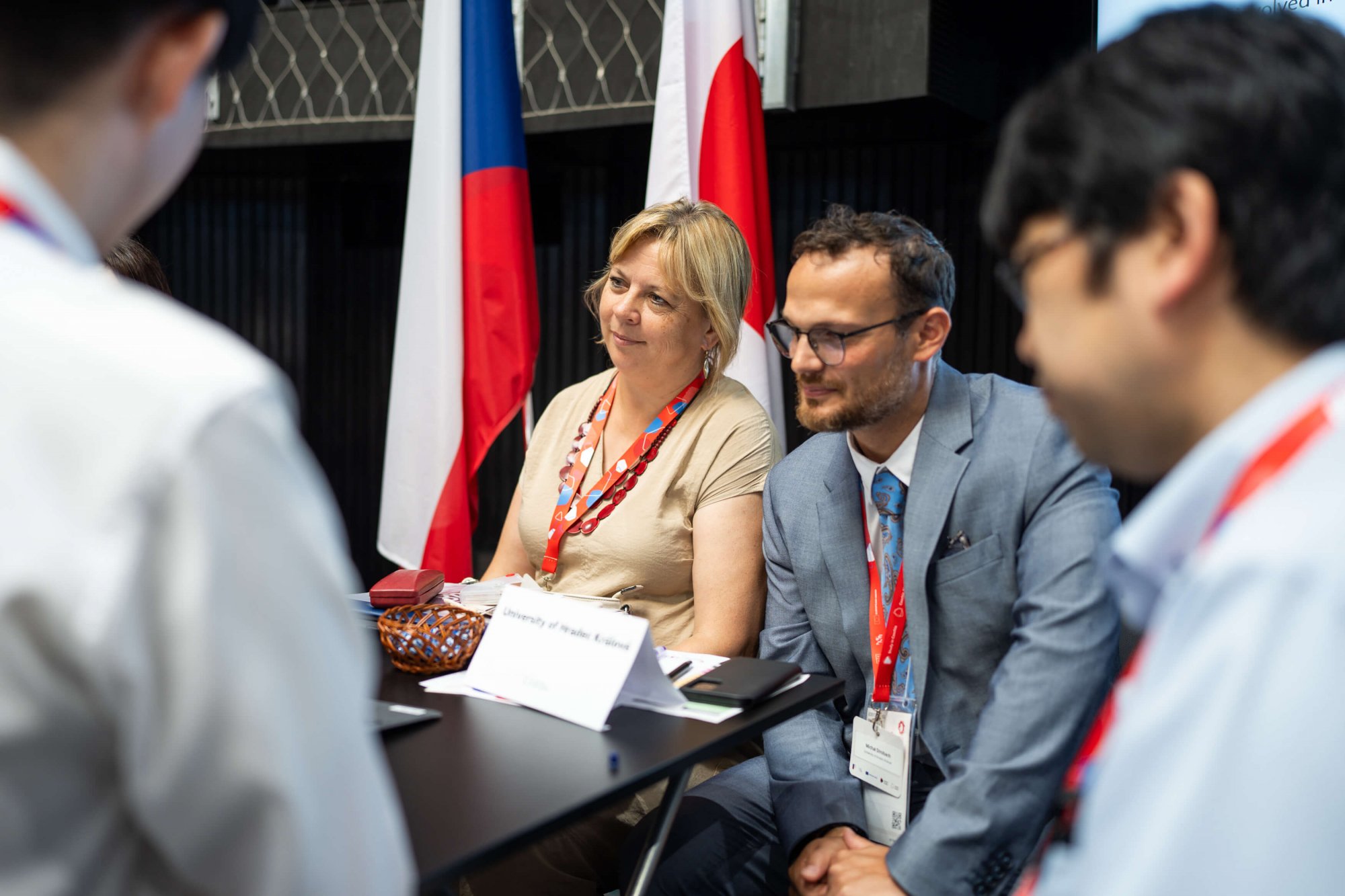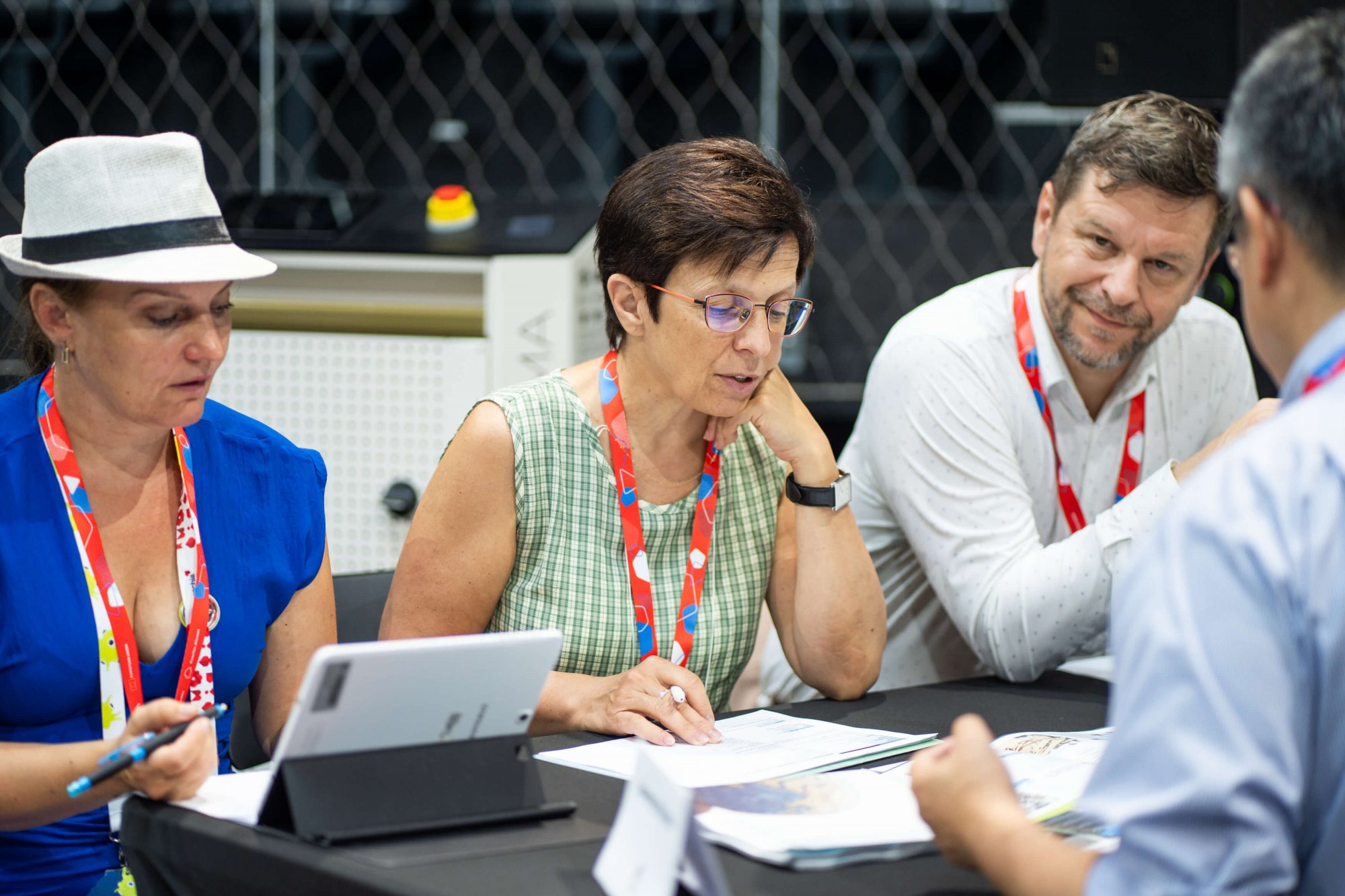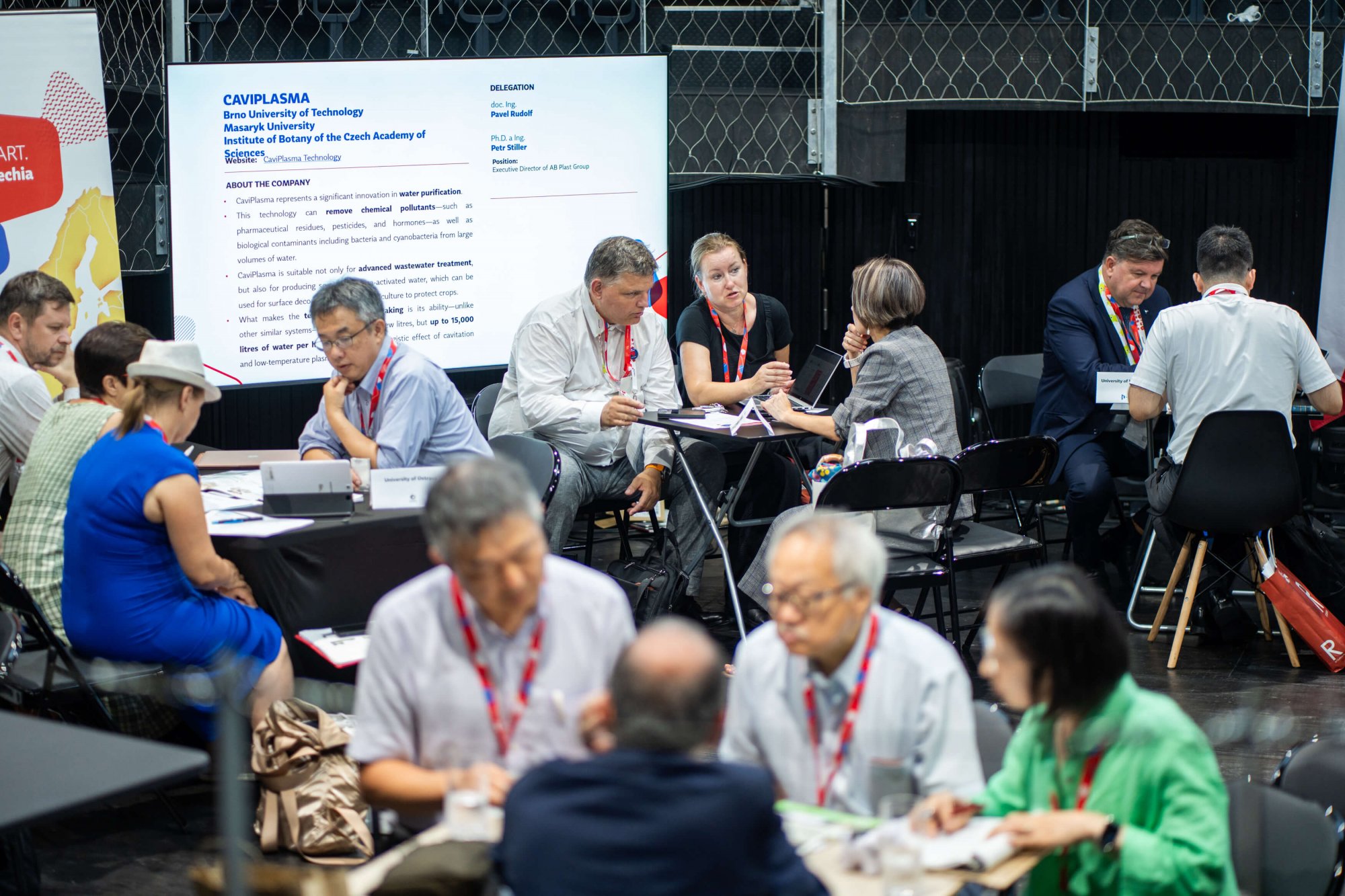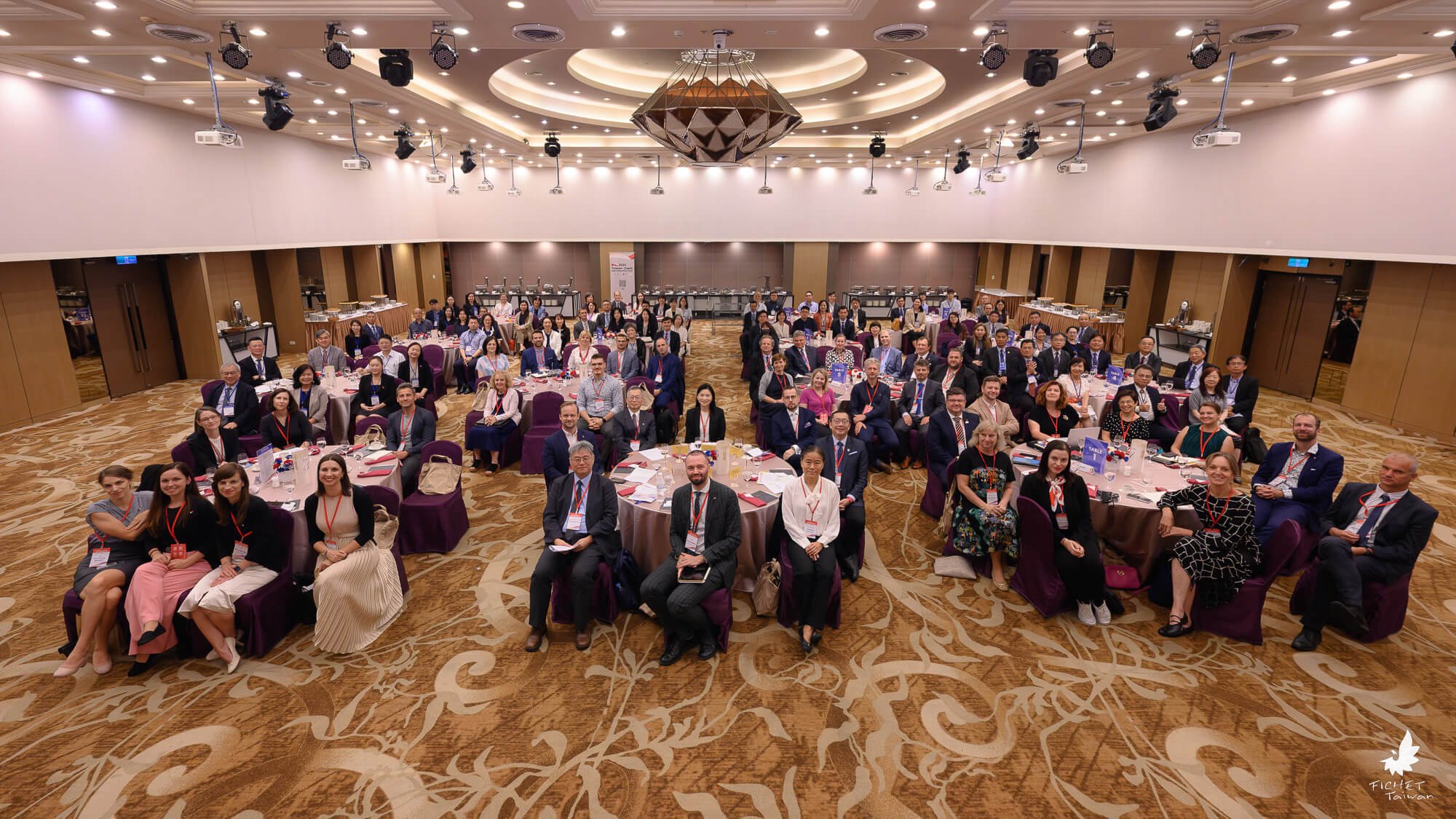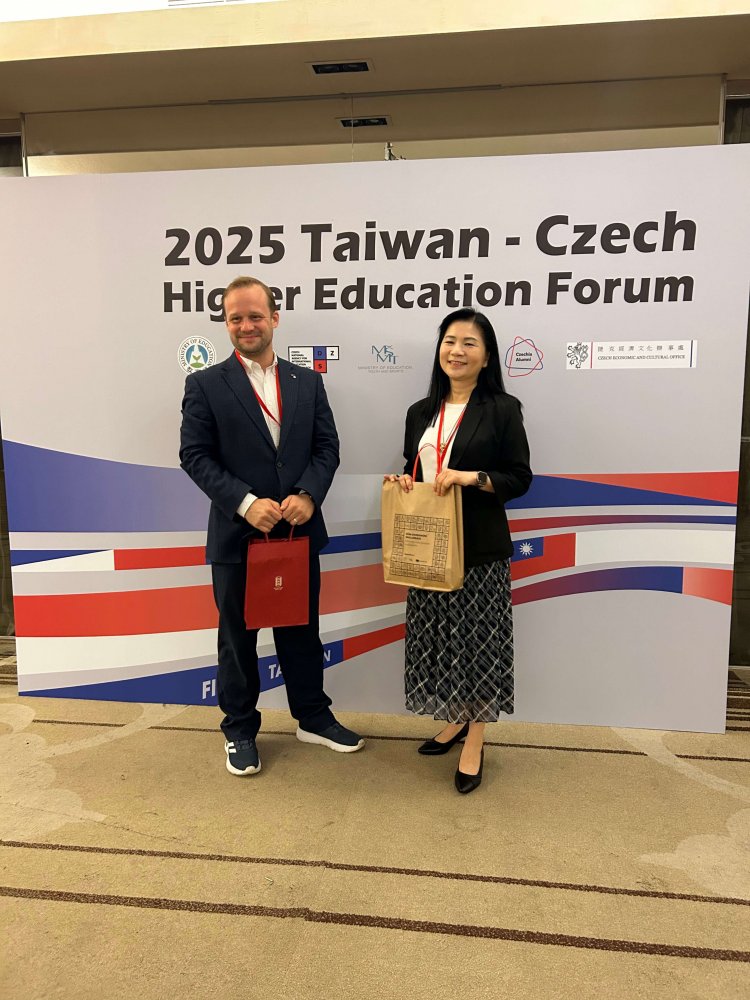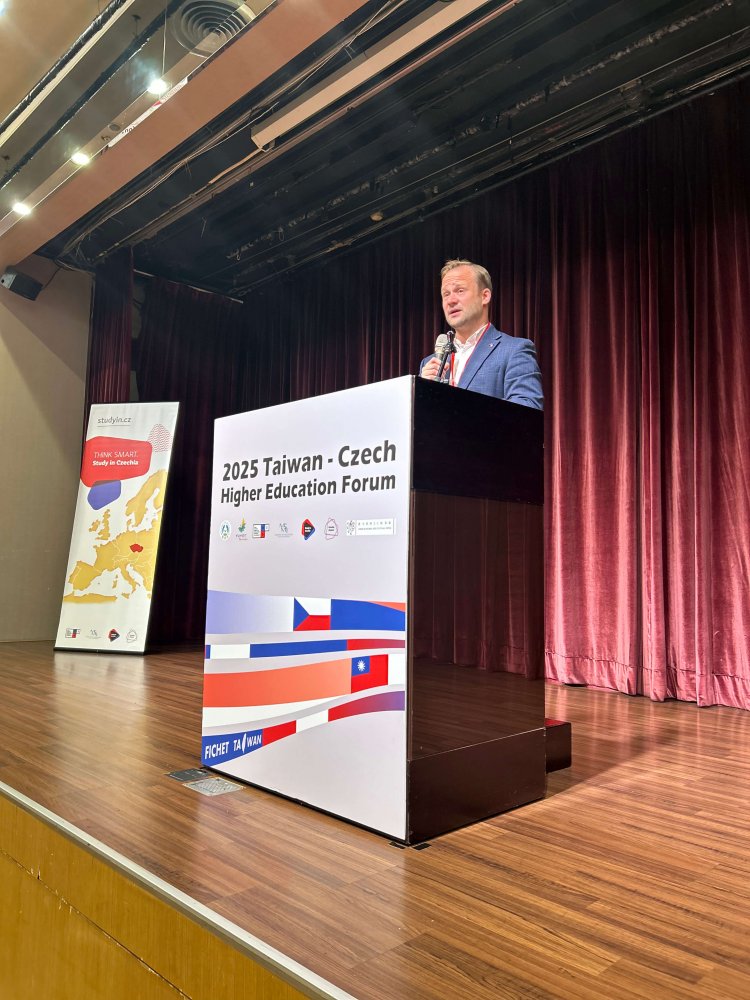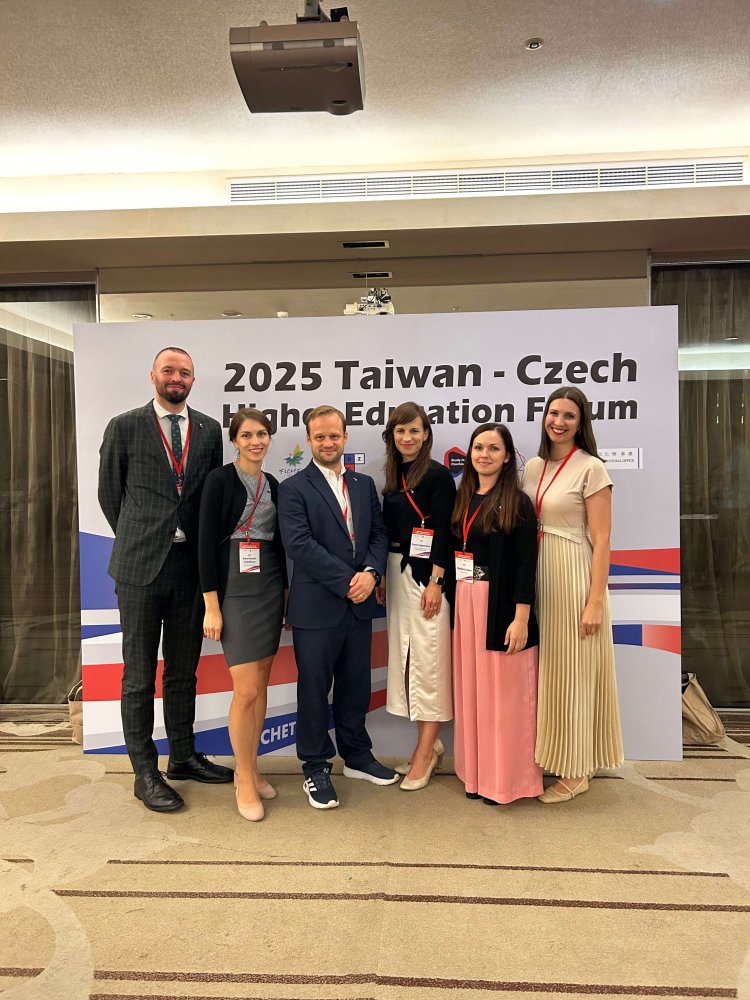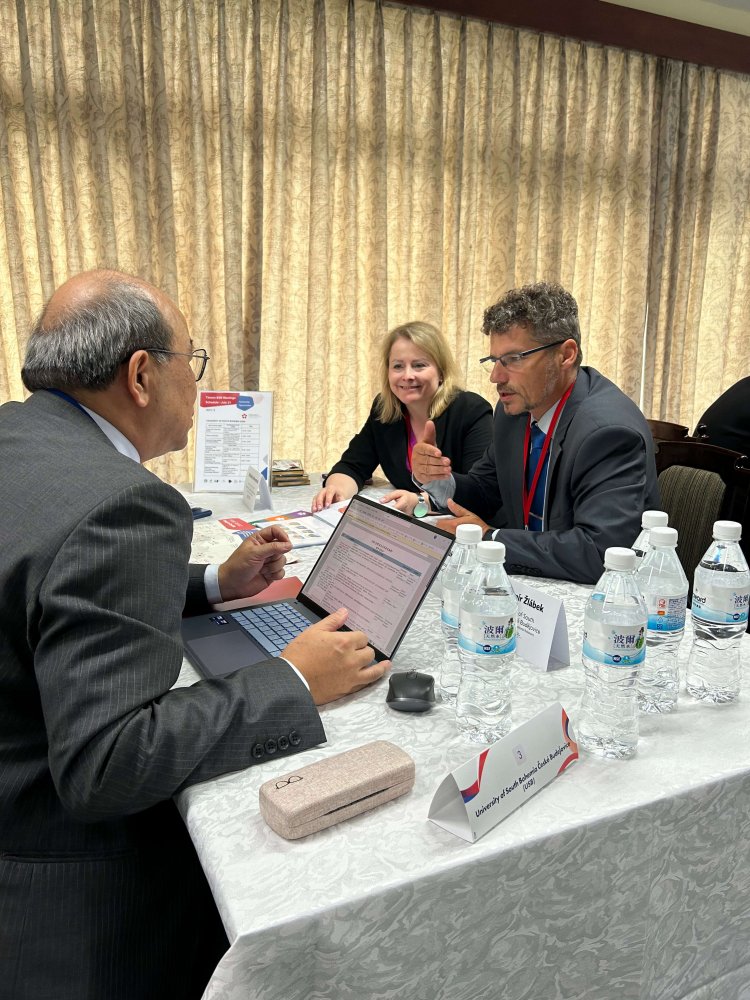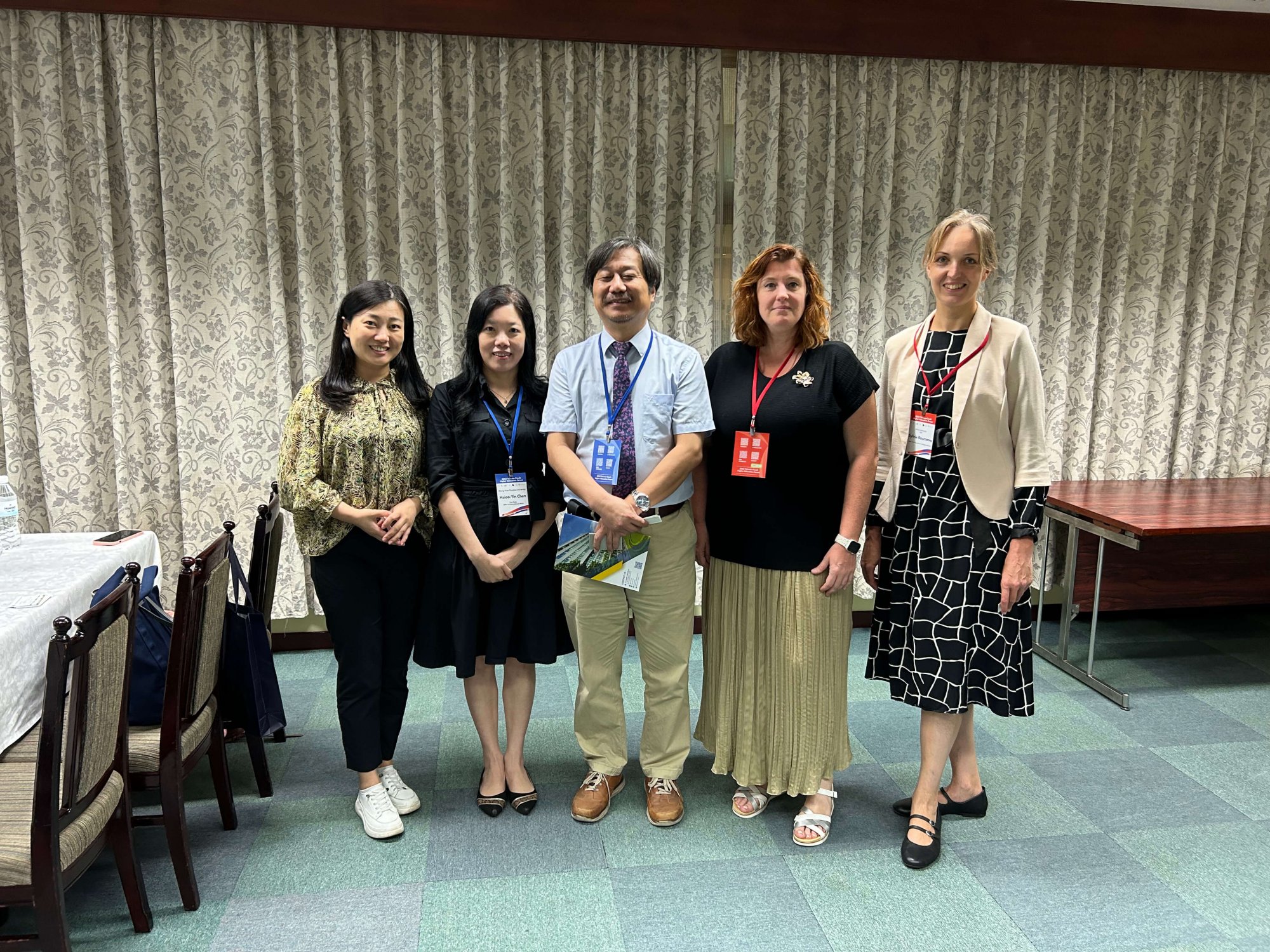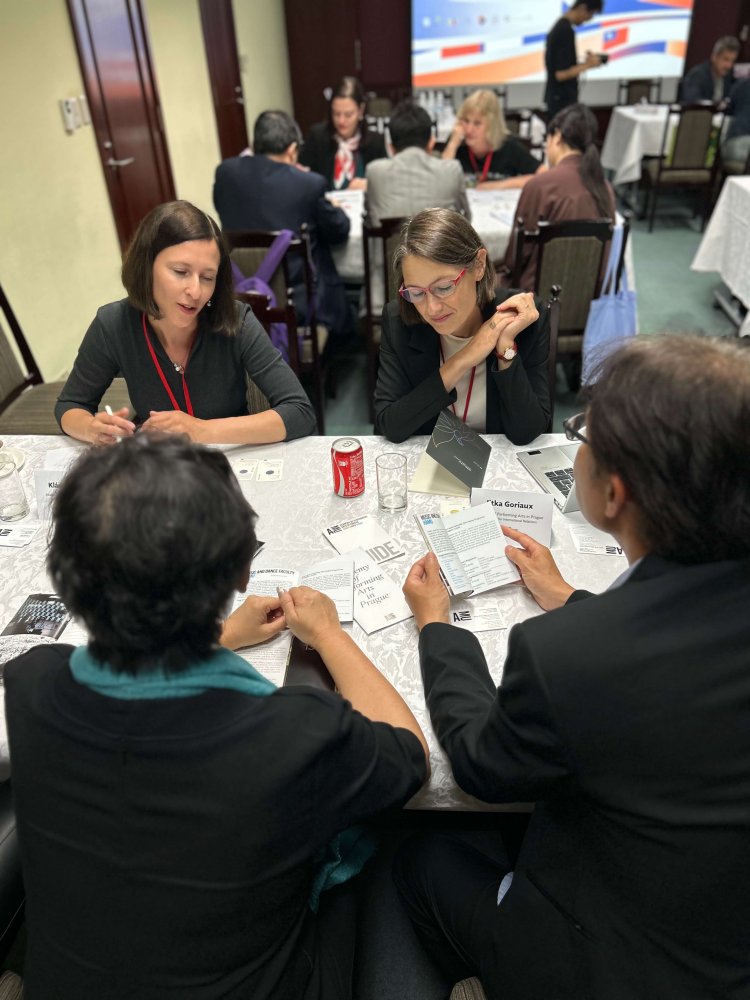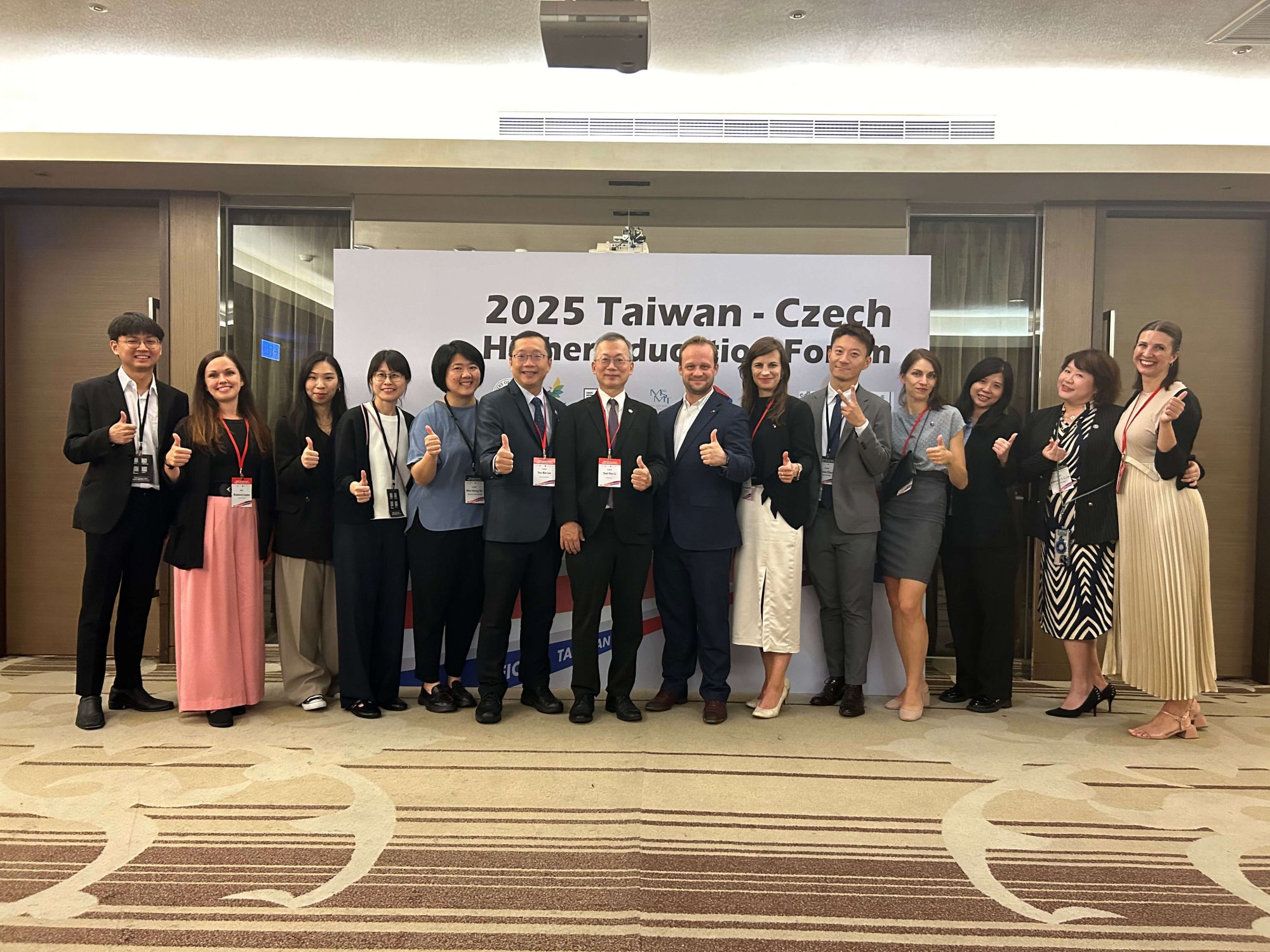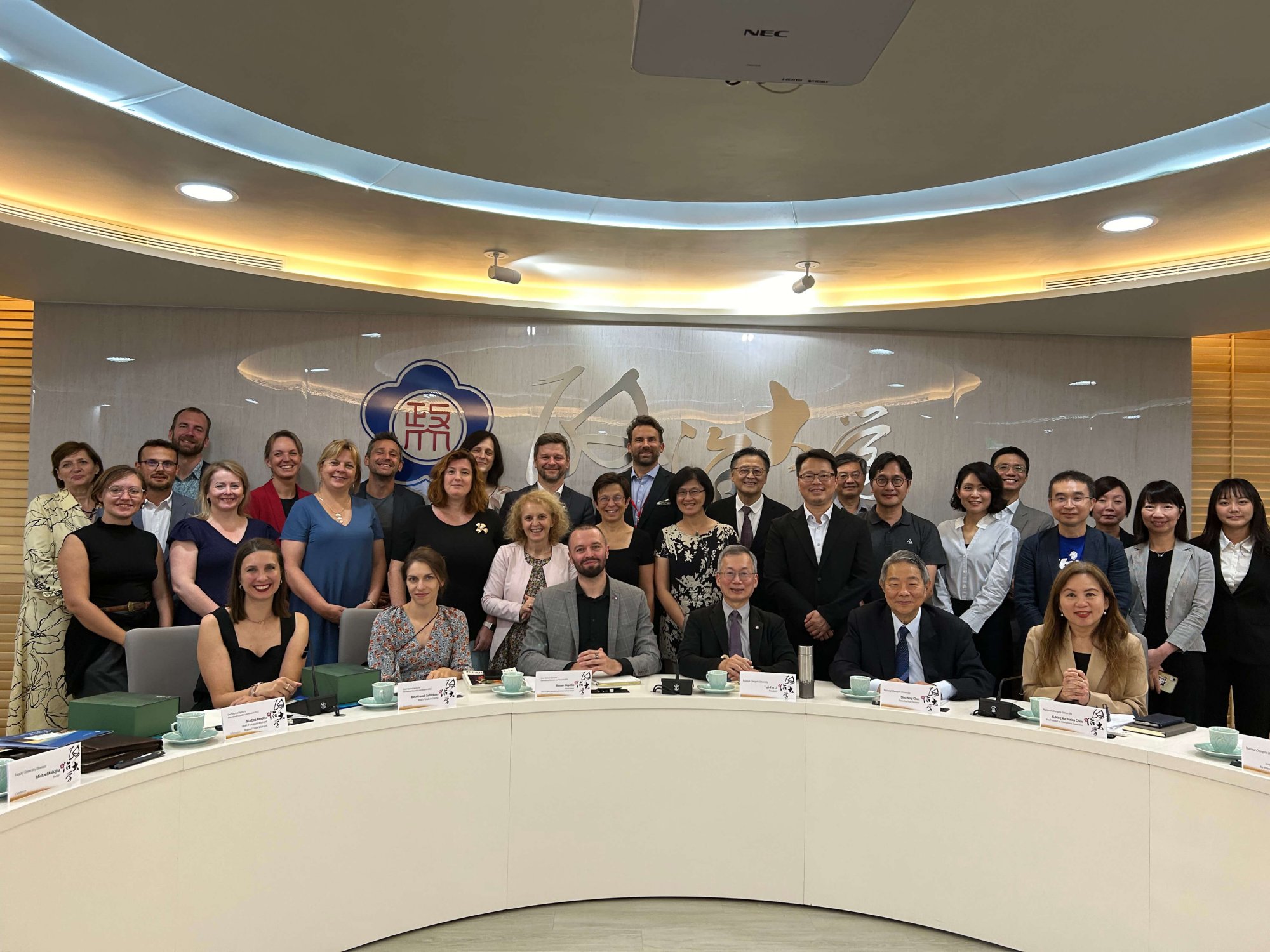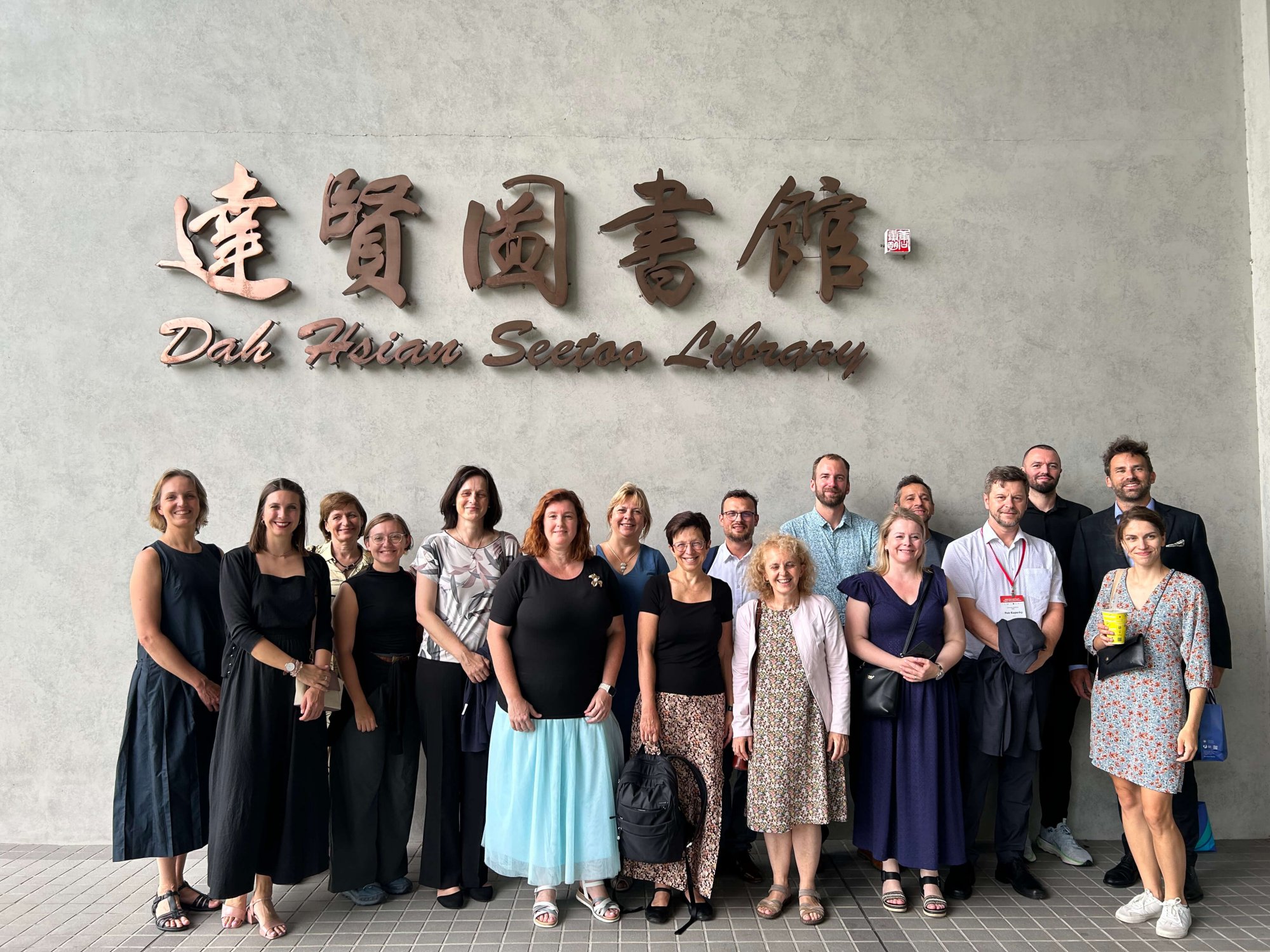Taiwan, Japan and EXPO 2025: The largest academic mission in Asia has strengthened international cooperation among Czech universities
A delegation of 18 Czech universities under the auspices of DZS visited Taipei and Osaka to build new partnerships in a key region
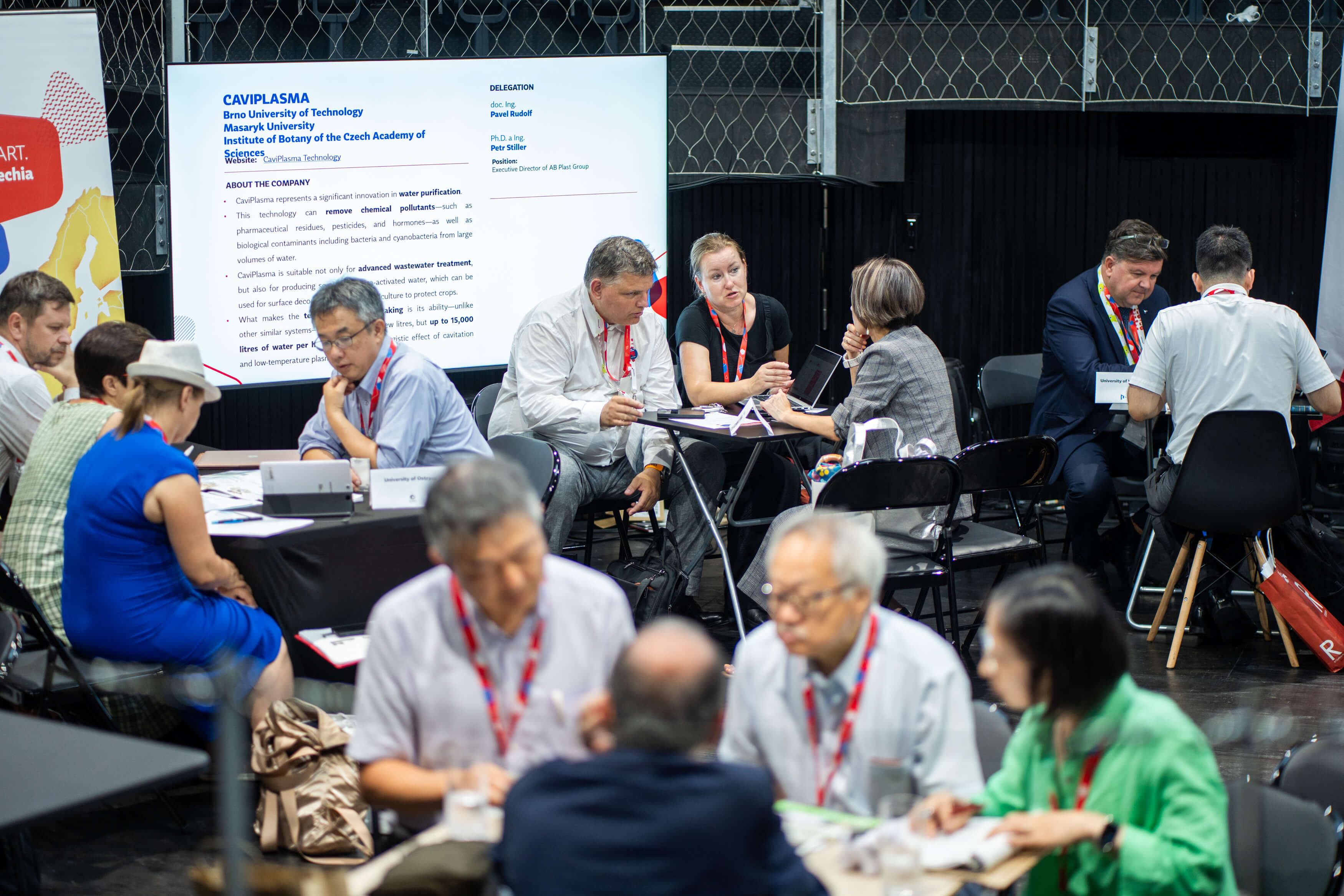
Japan and Taiwan are gradually emerging as strategic partners for Czech universities – in terms of research cooperation, attractiveness for student mobility, and innovative cooperation formats. The Czech National Agency for International Education and Research (DZS) responded to these priorities through the Study in Czechia initiative by organising the largest Czech higher education mission to Asia to date.
“Both countries are leaders in innovation, research and technological development, and at the same time represent attractive destinations for students and research partners. Our goal was to create opportunities for new partnerships and deepen existing cooperation. We are pleased that we were able to connect representatives of nearly twenty Czech universities with 70 Japanese and Taiwanese partners across various fields,” explains Soňa Lippmann, Head of the Communication and Analytical Division at DZS.
A delegation composed of rectors, vice-rectors and heads of international offices from 18 Czech universities, spanning a wide range of disciplines, first travelled to Taipei for two days of intensive meetings with Taiwanese counterparts. It then continued to Osaka, Japan, where DZS, on the occasion of the EXPO 2025 world exhibition, organised EDU Day, a special day dedicated to education. The event provided space to showcase the quality of Czech higher education, top research and innovative infrastructure. It also offered further opportunities to develop cooperation with Japanese universities.
During the week-long programme, centered primarily on targeted one-on-one meetings and visits to local universities, key topics were addressed – such as student exchanges, joint research projects and new formats of university cooperation.
“The mission met its goals and expectations – both in terms of deepening existing partnerships and initiating negotiations for new agreements. We agreed on specific steps to promote Taiwanese and Japanese universities to our students, and on organising webinars with their coordinators,” said Petr Kopecký, Rector of the University of Ostrava.
The trip also benefited institutions that already have established partnerships. “Even when student exchanges or other forms of cooperation with foreign partners are going well, it’s important to occasionally reassess and reaffirm the collaboration. This trip enabled us to meet several partners in each of the countries we visited – all in just a few days,” said Michael Kohajda, Rector of Palacký University Olomouc.
Shared priority: Czechia and Taiwan strengthen academic ties
Long-standing constructive relations between Czechia and Taiwan are growing stronger in education and research. Taiwan ranks among the top ten countries with the highest number of international students on academic exchange in Czechia – right after the USA and European countries. The strong interest of Taiwanese institutions in developing university partnerships was confirmed at the Czech-Taiwan Higher Education Forum, organised by DZS in collaboration with the national agency FICHET (Foundation for International Cooperation in Higher Education of Taiwan). More than 50 Taiwanese universities attended the event, reflecting the extraordinary potential for bilateral academic cooperation.
“Czechia is perceived in Taiwan as one of the key partners – not only in technical fields but across the academic spectrum. Several Taiwanese universities focus on semiconductor and IT cooperation, but we also have excellent art schools, medical faculties and language programmes. These are exactly the areas where we see great potential for new partnerships with Czechia,” explains Tzu-Bin Lin, Executive Director of FICHET.
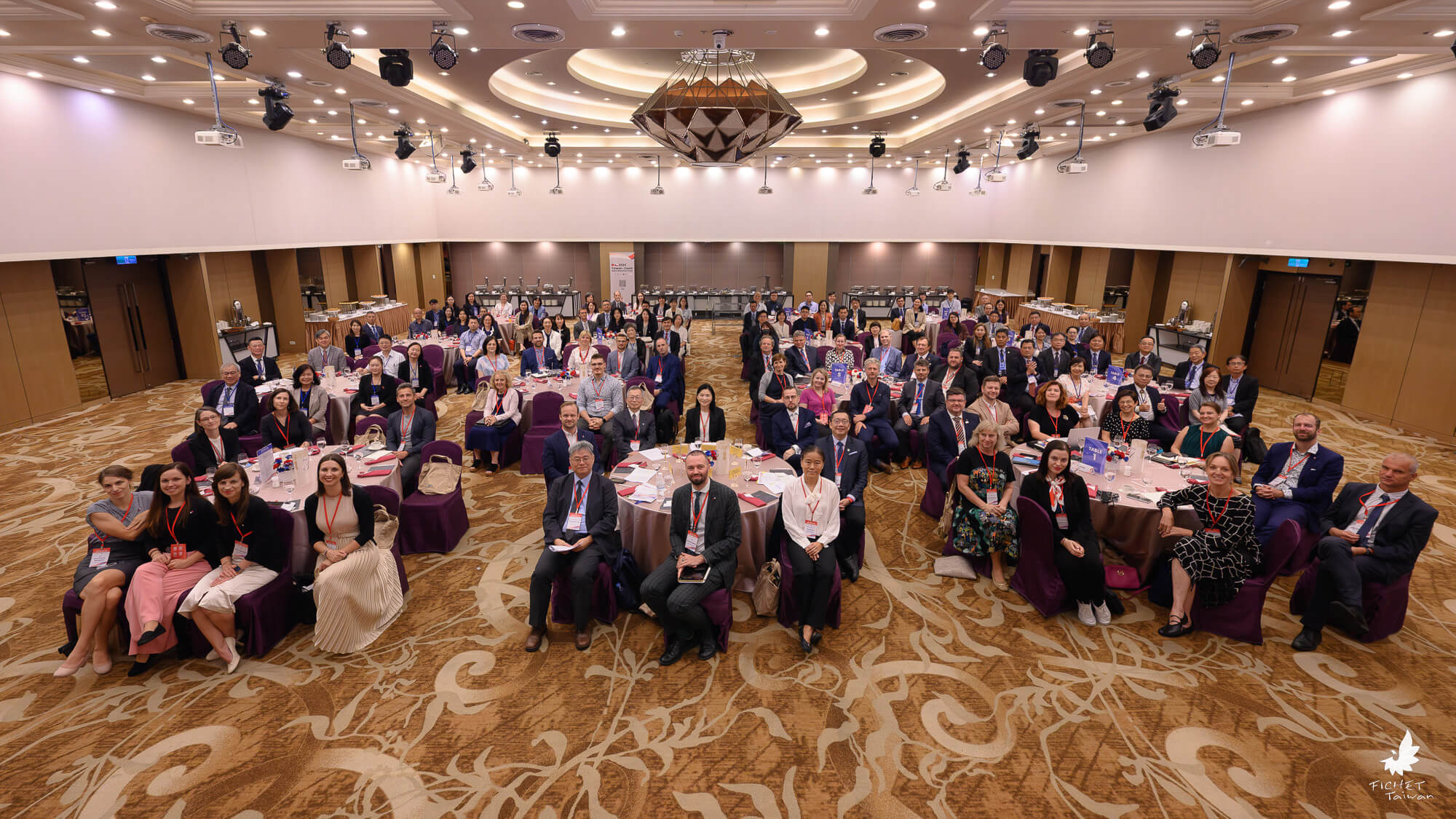
The Czech–Taiwan partnership is built not only on academic collaboration, but also on shared values and cultural affinity. “We share many things with Czechia – a strong sense of family, musical and architectural heritage, and a strong scientific base. Among European countries, Czechia has a very solid position in terms of science and academic cooperation. It is a reliable partner with whom we want to build long-term exchange,” adds Lin.
During the day, over 120 meetings took place, focusing on various forms of student exchange and other types of cooperation – from summer schools and double degree programmes to joint teaching of online courses, as well as potential research cooperation among academics.
Support through government scholarships
The forum also gave universities better insight into national education priorities and scholarship opportunities. Like Czechia, Taiwan systematically invests in the internationalisation of its higher education system. In the 2024/2025 academic year, almost 125,000 international students studied in Taiwan, including 239 students from Czechia, over a third of whom were enrolled in full-degree programmes.
One programme of particular interest to the Czech side is TEEP (Taiwan Education Experience Program), which offers international students up to six months of internship in industry or research, along with language and cultural preparation. Participants receive monthly stipends of up to TWD 15,000 (approx. CZK 10,000) and tuition fee waivers. According to Tzu-Bin Lin from FICHET, this is an exceptionally generous offer for students in Taiwan.
Interest in Japan: student exchanges, practical experience, and summer schools
While the focus in Taiwan was on strengthening existing partnerships, in Japan, Czech universities relied on past contacts while also identifying new opportunities. Interest from Japanese universities was tangible – especially around student exchanges, summer schools, and efforts to better understand the Czech higher education system.
Some Japanese institutions highlighted the lower motivation of PhD students for mobility. As a good practice, they mentioned a short one-week course organised by the University of Chemistry and Technology, Prague (UCT Prague), which served as a bridge for further exchange. More Czech universities expressed their willingness to tailor programmes to the needs of partners and offer flexibility with timing and integration of study with research or industry.
Japanese partners prefer to organise summer schools in April, in line with their academic calendar.
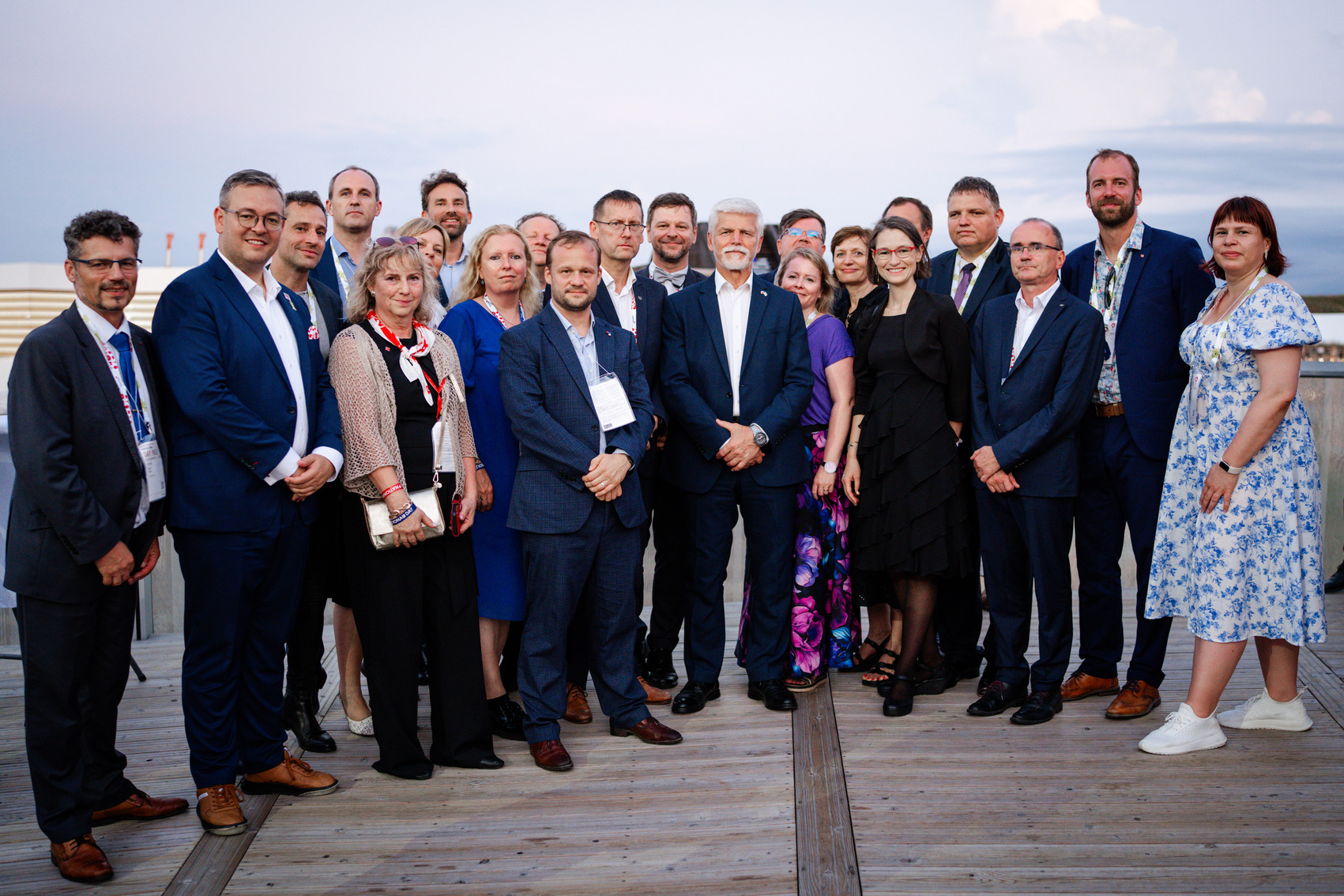
Meetings also addressed challenges such as the limited offer of English-taught courses on the Japanese side and the integration of international students into regular classes. “Although Japanese universities do offer special programmes for international students, they tend to be narrow in scope and separate international students from locals, which reduces opportunities for intercultural connection,” explains Japanologist and Vice-Rector Ivona Barešová from Palacký University Olomouc.
Czechia has a lot to offer
At EDU Day at EXPO 2025, Czech universities showcased concrete projects as inspiration for diverse forms of collaboration. Miroslav Lávička, Rector of the University of West Bohemia, presented the university’s cooperation with the City of Pilsen and its industrial base, as well as cultural projects such as the Read Japan community centre.
Take a look at how we showcased Czech science, research, and education in our new video at EXPO 2025:
As part of the Education Day, presentations of university spin-off companies were held, showcasing how research results are being connected with real-world applications. These companies demonstrate that Czech universities are capable of effectively transferring new knowledge into practice. Selected innovative projects were presented, representing the forefront of Czech research while also holding strong potential for practical use.
The delegation was also hosted by local universities in both countries
As part of the networking mission, Czech representatives visited Taiwanese and Japanese universities, where existing relationships are strong and new opportunities are emerging.
At National Taiwan University (NTU), cooperation had mostly taken the form of short-term exchanges and intensive courses, which are in high demand among Taiwanese students – especially when practically oriented and taught in English. Thanks to Czechia’s participation in the Taiwan-Europe Semiconductor Training Programme, Czech students can also join specialised courses and internships in the semiconductor sector.
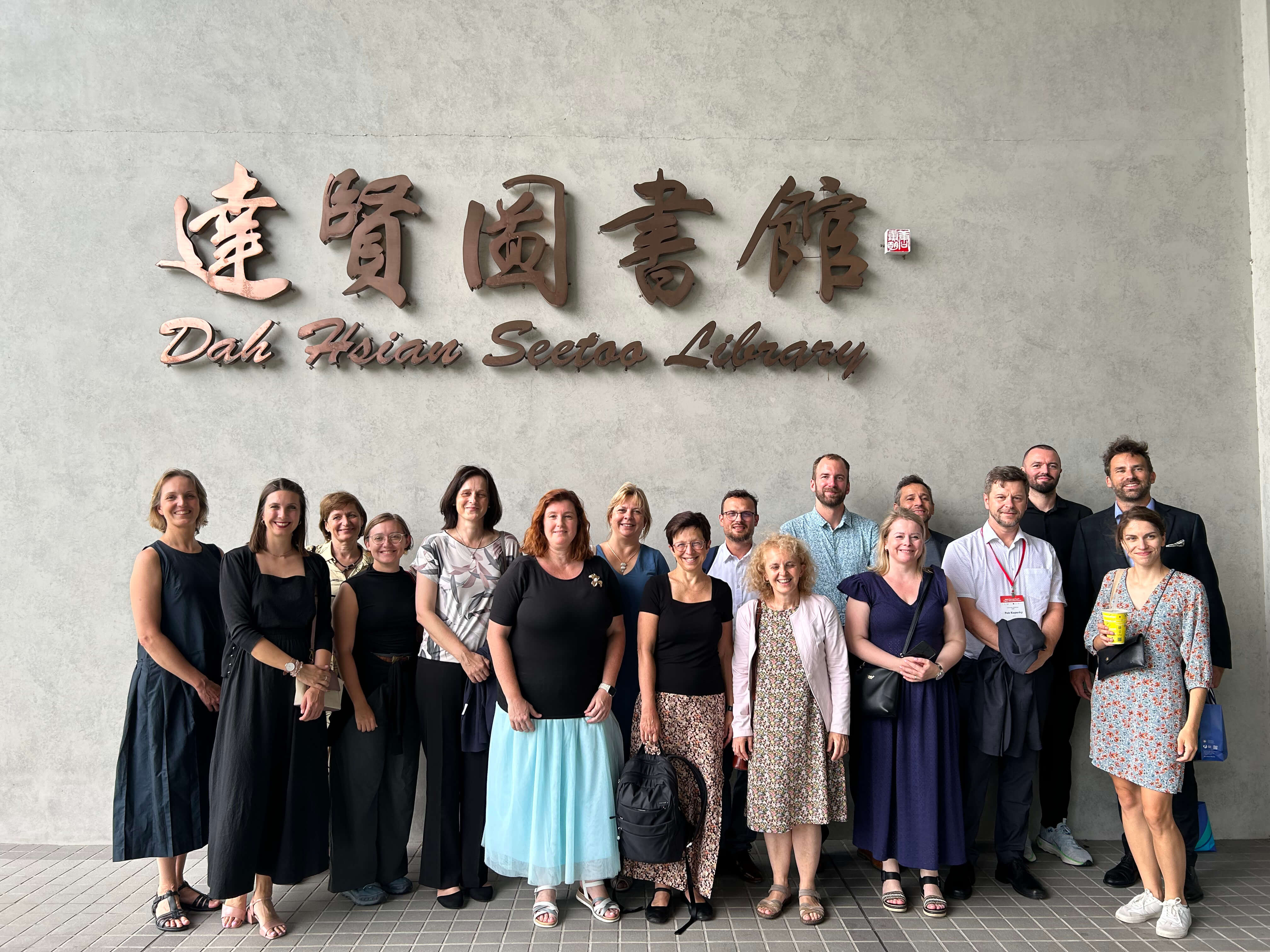
At National Chengchi University (NCCU), which already partners with 16 Czech universities, discussions expanded beyond technical subjects to include humanities and economics. Topics like tandem teaching and teaching internships in Czechia were frequently mentioned.
At National Taiwan University of Science and Technology (Taiwan Tech), talks focused on sustainable energy, advanced membrane technologies, and industry–academia collaboration. A highlight was the honorary professorship awarded to Radek Holý, Vice-Rector of Czech Technical University, for his role in innovation cooperation between academia and industry.
In Japan, Kansai University showed particular interest in deepening exchanges and expressed curiosity about the needs of Czech students – from language preparation to integration into the student community.
The mission delivered concrete results
Some Czech universities formed new partnerships, while others significantly strengthened existing ones. During the mission, three Memoranda of Understanding (MoU) were signed:
- between the University of Hradec Králové and Shimonoseki City University (Japan)
- between Mendel University and Chung Yuan Christian University (Taiwan)
- and between Palacký University Olomouc and Osaka University (Japan)
Palacký University brought back proposals for cooperation in education, healthcare and sports sciences from Taiwan. “We’ve had a long and excellent partnership with NCCU, but until now, we’ve benefitted more than they have. This time, we identified concrete opportunities to involve their students in exchanges at UPOL, and we believe some will materialise soon,” said Vice-Rector Ivona Barešová.
Petr Kopecký, Rector of the University of Ostrava, also highlighted the internal value of the mission: “Thanks to DZS, we had the chance to meet representatives of many Czech universities in one place and in a short time. An important added value was getting to know each other, networking within the Czech delegation, and even starting to consider a joint short-term programme hosted by a different Czech university each time.”
We thank all our partners involved in organising the networking mission and the participation of Czech universities in EXPO 2025 – especially representatives of FICHET, the Ministry of Education (MOE) and CECO on the Taiwanese side, and the Japan Network for International Education (JAFSA) on the Japanese side. We would also like to thank Ondřej Soška, General Commissioner of Czech participation in EXPO 2025.
We also thank the following universities for representing Czech higher education abroad:
• Academy of Performing Arts in Prague (AMU)
• Brno University of Technology (VUT)
• Charles University (UK)
• Czech Technical University in Prague (ČVUT)
• Mendel University in Brno (MENDELU)
• Palacký University in Olomouc (UPOL)
• Prague University of Economics and Business (VŠE)
• ŠKODA AUTO University (ŠAVŠ)
• University of Hradec Králové (UHK)
• University of South Bohemia in České Budějovice (JU)
• Czech University of Life Sciences Prague (ČZU)
• Masaryk University (MU)
• Tomas Bata University in Zlín (UTB)
• University of Economics and Management (VŠEM)
• University of Chemistry and Technology, Prague (VŠCHT)
• University of Ostrava (OU)
• University of Pardubice (UPCE)
• University of West Bohemia (ZČU)
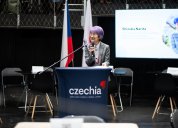
Zdroj: Kancelář generálního komisaře, EXPO 2025, Zdeněk Jindra

Zdroj: Kancelář generálního komisaře, EXPO 2025, Zdeněk Jindra
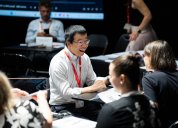
Zdroj: Kancelář generálního komisaře, EXPO 2025, Zdeněk Jindra
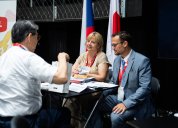
Zdroj: Kancelář generálního komisaře, EXPO 2025, Zdeněk Jindra

Zdroj: Kancelář generálního komisaře, EXPO 2025, Zdeněk Jindra
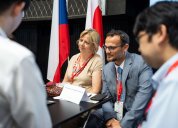
Zdroj: Kancelář generálního komisaře, EXPO 2025, Zdeněk Jindra

Zdroj: Kancelář generálního komisaře, EXPO 2025, Zdeněk Jindra

Zdroj: Kancelář generálního komisaře, EXPO 2025, Zdeněk Jindra
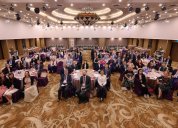
Zdroj: FICHET
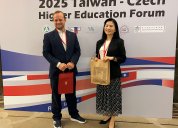
Zdroj: DZS
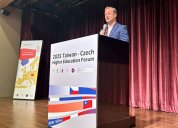
Zdroj: DZS
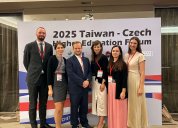
Zdroj: DZS
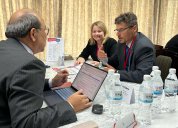
Zdroj: DZS
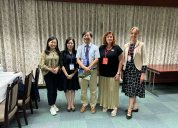
Zdroj: DZS

Zdroj: DZS
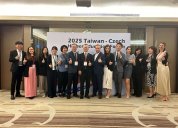
Zdroj: DZS
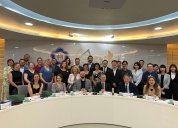
Zdroj: DZS
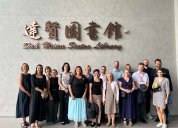
Zdroj: DZS
